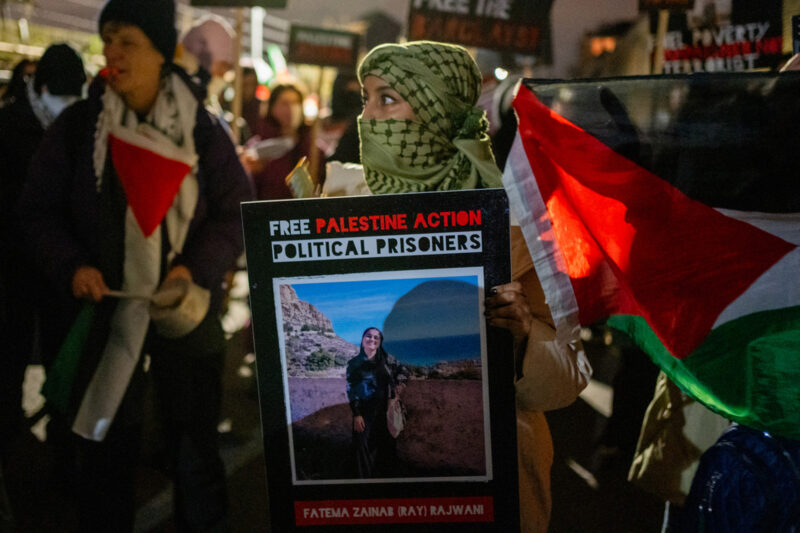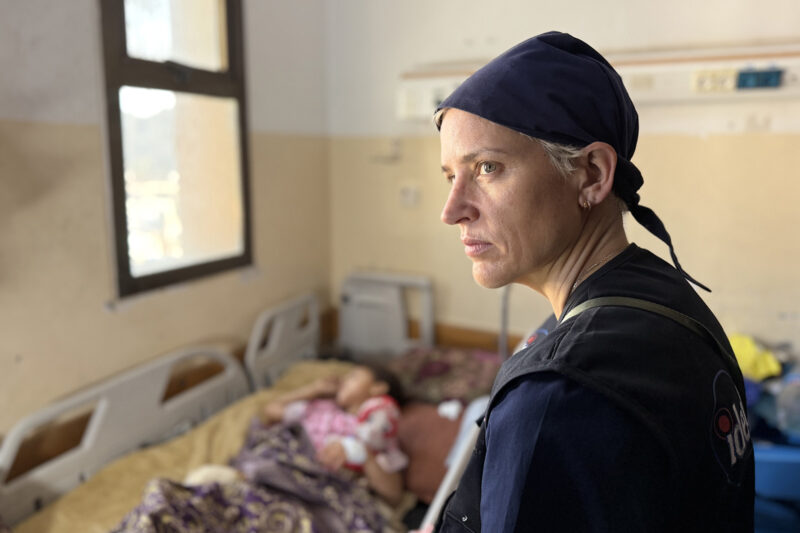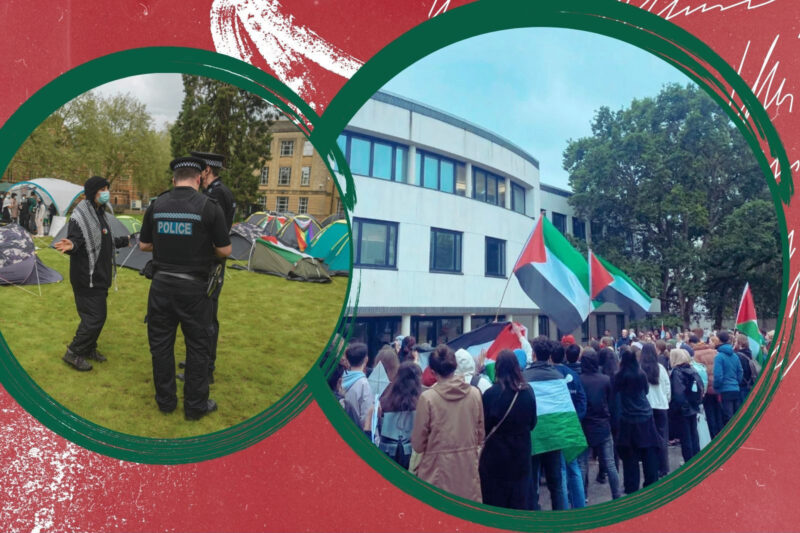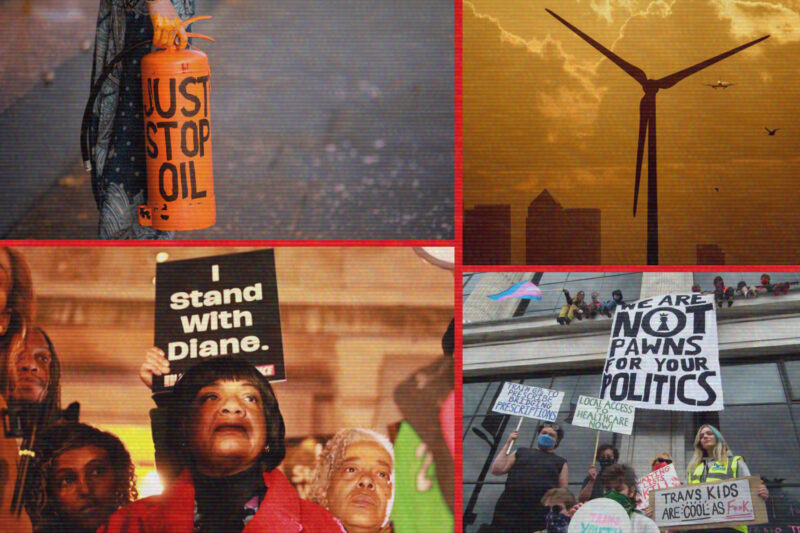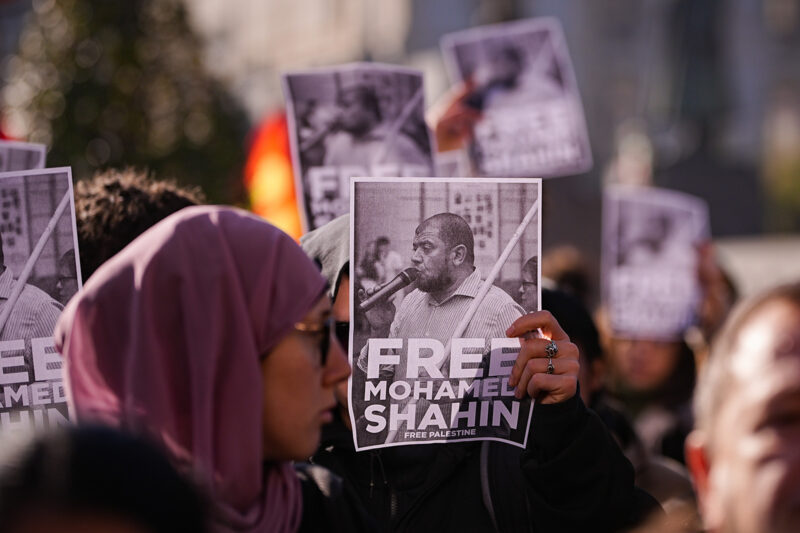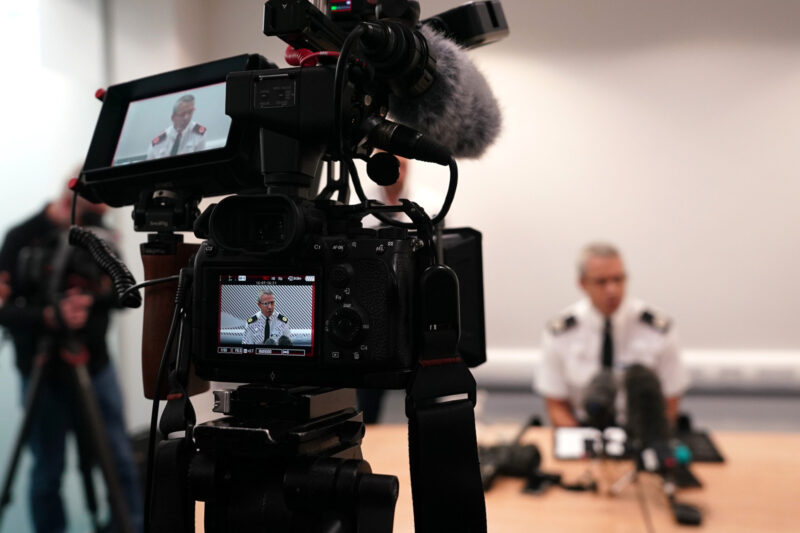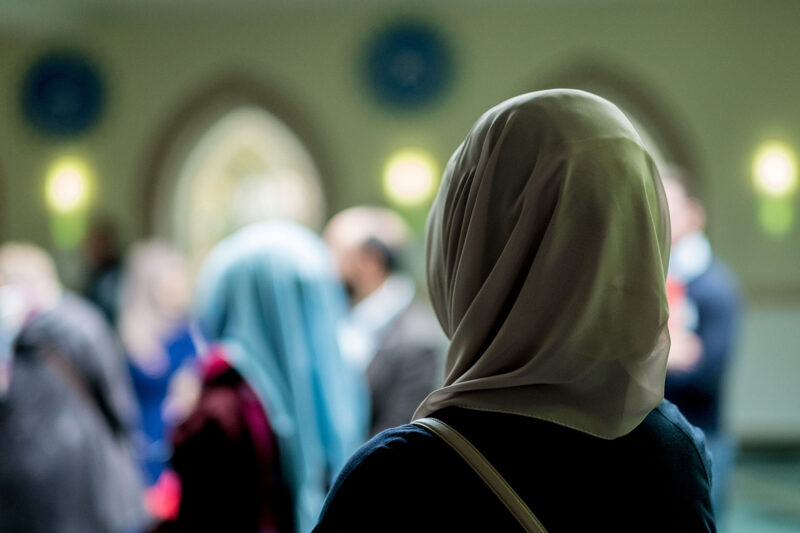No regrets: the people in prison for protesting against the war in Gaza
More than a dozen pro-Palestine protesters are spending the anniversary of 7 October in British jails. Their message for the world? It was worth it
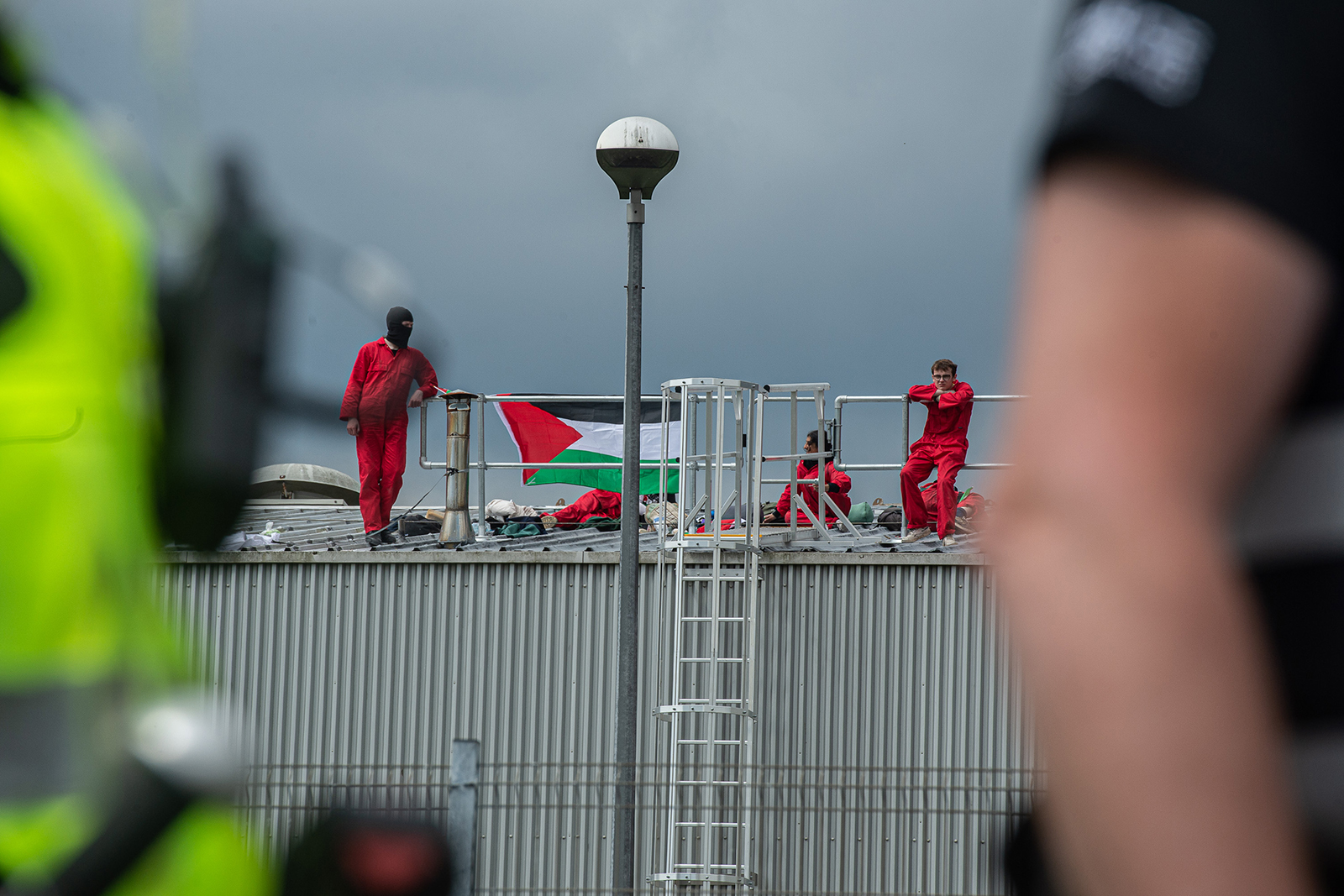
When Stuart Bretherton was sentenced to 12 months in prison for breaching the peace, he was given no chance to say goodbye to his partner, who was pregnant.
Bretherton, 25, had been convicted over the rooftop occupation of an arms factory in Glasgow that he and four others carried out as part of Palestine Action — an activist network that targets weapons makers it says are complicit in Israeli attacks against Palestinians.
His supporters in the public gallery at Glasgow Sheriff Court in August were visibly outraged. His partner, due in February and suddenly facing the prospect of pregnancy without him, cried. Bretherton, like his friends and family, had not expected a prison sentence for what has been described by legal professionals in Scotland as a low-level crime — one to which he had pleaded guilty, as a first-time offender.
But today he believes it had always been the court’s intention to make an example of him. “We’ve been made political prisoners,” he wrote in a letter to Hyphen from HMP Barlinnie in Glasgow.
As Bretherton awaited trial, Britain’s streets had regularly swelled with some of the country’s largest ever anti-war protests, objecting to the government’s continued support for Israel. But the action that got him locked up pre-dated 7 October 2023 — the date of Hamas’s attacks on Israel — and the subsequent commencement of Israel’s bombing campaign against Gaza by more than a year.
Dressed in Palestine Action’s signature red overalls, Bretherton and four others — Eva Simmons, 25, Calum Lacy, 23, Erica Hygate, 23, and Sumaya Javaid, 22 — scaled the roof of the Thales factory in Govan, Glasgow, at the crack of dawn on 1 June 2022. Carrying rucksacks and balaclavas, the group unfurled banners, flew Palestinian flags and set off flares. Court documents say site facilities were damaged and workers were forced to evacuate the building.
Bretherton, Simmons, Hygate and Lacy — who is originally from the US — were given 12-month sentences, while Javaid was jailed for 14 months. They are among at least 16 Palestine Action activists now behind bars for targeting firms that they say are complicit in Israel’s onslaught in Palestine and the occupation in the West Bank.
The companies they have targeted often deny direct involvement, although French firm Thales — which has previously defended its joint venture with Israeli-owned Elbit, saying its UK arm did not supply equipment to the Israeli military — has not responded to our requests for comment.
Despite his initial shock at being jailed, Bretherton told Hyphen he had no regrets. “The UK has been complicit for a century and even now continues to arm Israel,” he said. “The only path available to oppose the slaughter is direct action, disrupting or ending the flow of weapons and business of anyone complicit.”
Lacy — who had participated in student occupations in the months leading up to the Thales action — echoed his words. “I wanted to fight Israeli apartheid in the West Bank, and Palestine Action is all about that,” he said. “Thales was a local factory that supported apartheid, so instead of begging or petitioning to have it shut down, we shut it down.”
Asked what he was feeling as he scaled the roof, Lacy said he had experienced a rush of “panic and adrenaline”, but admitted: “The adrenaline doesn’t last 14 hours. Most of the time I was bored, but satisfied we were doing something good.”
All five pleaded guilty, believing it would save time and stress and get them more lenient sentences. But a raft of policing legislation since 2022, brought in largely to crack down on environmental groups such as Just Stop Oil, has hardened the legal system’s treatment of even peaceful protesters. Some have received harsher sentences than the rioters who terrorised British communities over the summer with violent racist attacks against mosques and businesses.
Francesca Nadin has been in custody since June, though she has yet to be found guilty of an offence. Nadin, 38, is due to go on trial in March 2025 for charges related to criminal damage after occupying the premises of tech firm Teledyne in Shipley, Bradford, halting the production of military electronics — and again in September for Palestine Action’s use of repurposed fire extinguishers to cover Barclays bank and JP Morgan’s offices in Leeds in red paint. Both banks have been accused of investing in Elbit Systems, Israel’s largest arms manufacturer. Barclays has denied bankrolling the war in Gaza. JP Morgan was approached for comment.
Like Bretherton and Lacy, Nadin has no regrets. Speaking to Hyphen over the phone from HMP New Hall in West Yorkshire, she said time in prison had made her “stronger, more determined, and more resilient”.
“What they hold over us is fear of getting arrested or going to prison,” she said. “But if anything, this experience has taken away my fear. They’ve done the worst that they can do to me and I’m fine.”
Many going through the criminal justice system get their first taste of incarceration not in prison but in a police cell immediately after arrest. In most cases, police are allowed to hold people for up to 24 hours before charging or releasing them, but can apply for extensions in certain circumstances.
So it was for Nadin, who eventually spent three days in police custody before an eventual court appearance. She was denied bail and sent to prison on remand, where she remains. “It was like they were doing everything they could possibly do to make us feel worthless,” she said of her experience at the police station. She claims she was denied her epilepsy medication and that police at the station tried to stop her seeing a nurse and her lawyer. We put these allegations to West Yorkshire police but the force said it could not comment on an ongoing case.
Nadin said inmates at the prison had been “friendly” and “helpful”, and that “there’s a real feeling of solidarity”. But she believes the prison authorities want to break her spirit. “You come in here and you’re dehumanised and institutionalised,” she said. “There’s a micromanagement of everything that is quite ridiculous. I have never seen anything like it. The amount of rules that you have for everything is just insane.”
She expressed particular concern about the use of segregation — when prisoners are kept apart — as a punishment. Nadin herself was segregated from her wing for a day after her supporters held a peaceful protest outside the prison in July. She claims she was told by the prison that she was “disturbing the good order of the establishment”.
A prison service spokesperson said: “Prisons have a responsibility to their local communities to make operational decisions which minimise disruption for those living nearby.”
Nadin has never doubted her actions, even on bad days. “I’ve been very clear from the first moment that, whatever the consequences were, I knew what I was getting into,” she said. “I knew the risks and I was willing to do it.”
Sentencing Bretherton in August, the sheriff, John McCormick, had said he wanted to “send a signal” to future protesters that “such unlawful and reckless actions will attract custodial sentences where appropriate”.
But it seems it will take more than the risk of a stiff sentence to put off Palestine Action, whose members have continued to risk, and receive, the wrath of the criminal justice system. Last week, three activists in the group’s red overalls burst through the roof of a Teledyne factory in Merseyside, where they suspected parts for the F-35 jets used by Israel were being held. Teledyne has not responded to requests for comment.
“Even in the darkest moments, hope is something that we always have to keep alive,” said Nadin. “It’s often all we’ve got and that’s what we have to cling on to.”
 Newsletter
Newsletter


